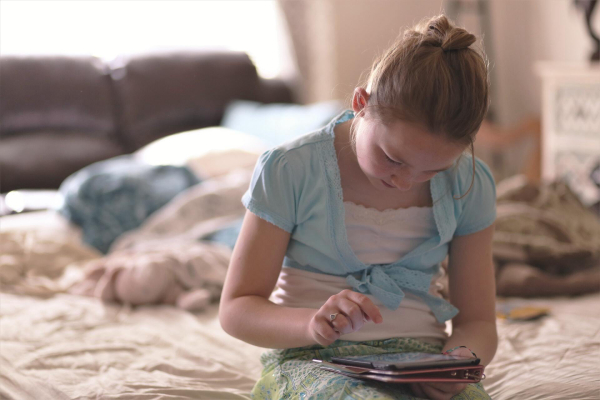
Don't feel guilty.
We are living through a massive cultural shock. Families have enough stress to deal with, and counting screen minutes should be very low on the list of concerns for any of us. There’s no official playbook for how to manage a household during a worldwide pandemic.
Watch screen timing.
Studies show that screen time before bed makes it hard for both children and adults to fall and stay asleep. try to reserve the last 60 minutes of the day for device-free time. Instead, read aloud and sing with children.
Content is key.
Choose quality content and use trusted sources to find it. Parents can visit Common Sense Media, Media Smarts and PBS for Parents, trusted sources for finding educational and age-appropriate screen time content and resources for kids. For school-age and older children, consider something creative like taking a virtual tour of another country or a museum.
Use Media for Social Connection.
Social distancing can be isolating and difficult to understand for younger children. If your kids are missing their school friends or other family, try video chats or social media to stay in touch. One of the best things about screens these days is their ability to bring people together. Relationships are critical to kids' healthy development. Tech can and should help kids connect to friends and family, collaborate with each other, play, and share stories, pictures, and videos.
Encourage physical activity in front of the screen.
During these times, many children will not get the amount of physical activity that they are used to. If learning, socializing and play is, for now, confined to the screen, we need new ways to help children remain active. With restricted outdoor movement, the WHO has recommended active video games and online exercise classes as a way to stay healthy at home. This is a good solution because it provides both physical activity and entertainment.
Don’t forget to make time for offline experiences.
Jenny Radesky, a developmental behavioral pediatrician at the University of Michigan, urge parents to preserve offline experiences, which help families connect emotionally, process difficult experiences, and heal. Plan off-screen activities for the whole family. Between school and work obligations, it’s rare for parents and children to have this much time together, so turn it into an opportunity for bonding. Write predictions for a TV show that the whole family watches. Organize a tournament, play family board games, put together a puzzle, play charades or get outside for a hike or walk together.